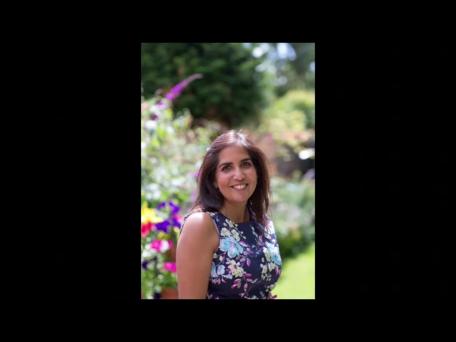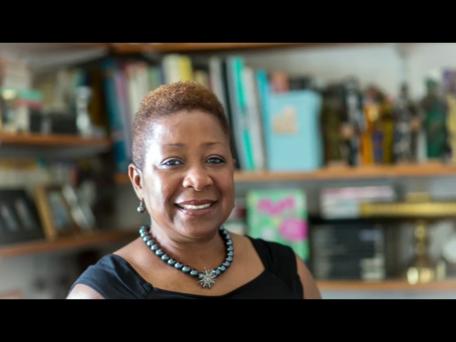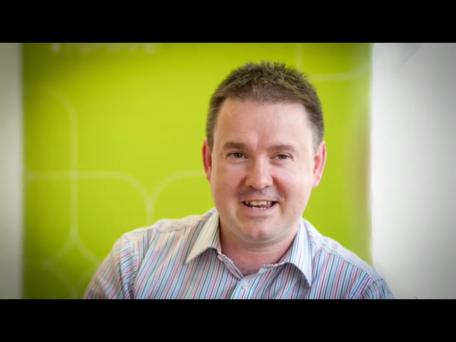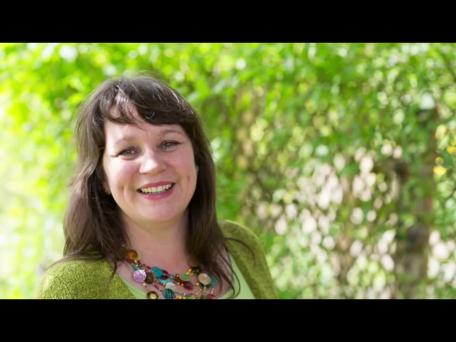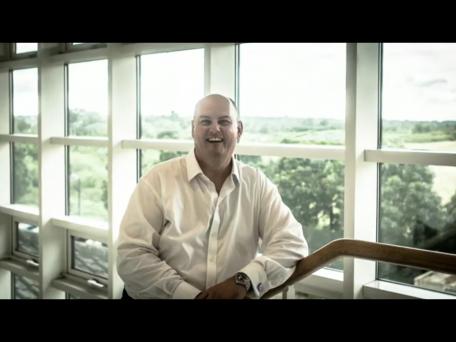Skills you can develop Arts and Humanities
As well as the specific subject knowledge gained from studying for an OU degree, you'll develop many transferable and work-related skills that are highly valued by employers and which will increase your employability.
For Arts and Humanities students the employability skills you'll develop include the ability to:
- select, analyse and synthesise relevant data and present conclusions concisely and logically
- assimilate, evaluate, mediate and present large amounts of complex information
- communicate effectively, clearly and accurately with others orally and in writing
- put together reasoned arguments and question assumptions
- think creatively and critically
- use ICT effectively and be able to interpret data
- be competent in team and project work
- work independently, evaluate your own performance and take steps to improve it.
You will also find information about employability skills that employers are looking for on Prospects.
The OU Careers and Employability Services define employability as "A set of capabilities and achievements that support students in developing their careers, raising their aspirations and enhancing their contribution to society".
Whatever your motivations for study, your goals and career aspirations, you are entitled to supported personal development planning either as an intrinsic part of your programme of study or through signposted optional activities. You can view the full Student Employability Policy Statement on our website.
Skills and attributes that employers value
As you progress in your studies, it is beneficial to think about the transferable skills you are developing and how these will be useful in your career and beyond. In the following podcast you will hear the Chief Executive of the Association of Graduate Recruiters discuss the skills and attributes that employers value in Arts and Humanities graduates.
Tips from employers
Click here to listen 340Carl: Hello, I’m Carl Gilleard and I’m the Chief Executive of the Association of Graduate Recruiters, AGR and my job brings me into contact with a lot of large employers who recruit graduates on a yearly basis. So I’m pretty much in touch with what’s going on in the graduate market.
Alison: What’s the job market like for graduates?
Carl: Graduate job opportunities depend very much on the state of the economy and as we all know, the economy, goes up and it goes down. But one thing I would like to just point out is that a degree is for life, so taking a short term view is understandable, but really if you’re planning a career you need to take a longer term view. And the truth is, that having a degree will stand you in very good stead for future job prospects.
Alison: We often hear about the need for more degrees in science, mathematics, engineering. What are things like for Arts & Humanities graduates?
Carl: In the past I think that we probably have had too few students signing up for science and technology degrees and there's obviously a growing demand for graduates in those disciplines. But, three-quarters of all the vacancies that AGR members offer don't specify a particular degree discipline. So I wouldn't be put off doing an Arts or Humanities degree at all, but do bear in mind that when you come into the job market, employers will expect you to show the added value that you've gained from taking the particular degree that you chose to do.
Alison: So what would be your tips to students, Arts & Humanities students from the Open University in thinking about how they promote themselves – what transferable skills do you think they have that perhaps they don't actually recognise?
Carl: For me, transferable skills are the key and if you've done an Arts or Humanities degree, particularly with the Open University, you're going to develop a whole range of skills that might not at first seem that obvious. So let's just start with time management. You may well be working or you'll have other responsibilities as well as studying, so how you actually find the time, how you meet your deadlines, what are your priorities....all of these things are key in virtually any professional job, so if you've gained those skills during your studies, it's important to be able to demonstrate or articulate them when you're applying for a job. But there are other, more specific things which employers tell me Arts & Humanities graduates pick up and one that comes very high on the list is critical thinking. I can't think of very few jobs in the modern world of work where not being able to think critically is unimportant, so emphasise those kind of skills that you've gained as well as the knowledge and the understanding of the specific subject and you won't go far wrong.
Alison: Do you think it's important for Arts & Humanities students to be looking to add to those skills outside of their studies?
Carl: I always encourage students – whether they are full time students or part time students to get a rounded education and a rounded life experience.
There are many jobs where having a rounded life experience is really important. First of all volunteering .... there are many forms of volunteering and you develop a whole range of skills through working with others from team working or maybe being a team leader, through being able to communicate with a host of people and just from understanding different people from different cultures and backgrounds with different needs is important whether you’re working in IT, or the legal sector or a bank. More specifically we’ve seen a growth in internships and work placements in recent times. So if you do have a specific type of career in mind, try to find a work placement that gives you an insight in to the work of that career will stand you in very good stead again.
Alison: You talk about internships, placements and so on, what are the professions or the job areas that Arts & Humanities graduates might think about?
Carl: The truth is that I’ve met Arts & Humanities graduates in a huge range of jobs. I think the important thing is to value what it is that you are studying and not to feel that in any way what you’ve done restricts your career. Where you start out in your career is very very rarely where you end up.
Alison: If students are interested in a particular area of work, how can they find out more about it?
Carl: First of all I think that if you want to know something about a career, use a careers service and I happen to know that at the OU they have a careers service, and it's a very professional service and they're there to give you whatever assistance you need. But you can also talk to businesses; there are events you can turn up at, recruitment fairs, careers events. But also, I think it's worth mentioning now the advent of social media and there are growing numbers of professional Linked In communities, and we're noticing that the sharp graduate or student is actually linking in to employers through that network. So there's a whole range of things to do. Don't leave that process until you've graduated – something you should start at least show an initial interest in right from the start of your degree programme.
Student stories
The Arts Faculty in collaboration with the Careers and Employability Services produced these short videos to illustrate how OU Arts graduates used their transferable skills to pursue their career goals.
Diane Ludlow, Deputy Manager at SureStart Centre
245Diane Ludlow: I'm Diane, Diane Ludlow. I live in Surrey, and I'm married with two teenage daughters. And I'm currently deputy manager at the Sure Start Children's Centre.
I grew up in Norwich. I went to school in primary school there. And then when I actually got to secondary school, my parents were not too impressed with the school I was at. And they took myself and both my brothers out of education, educated us at home.
Neither of my parents had gone into further education. And there was no expectation of me really going any further than O-levels. And then when I was 16, I just immediately went into the world of work.
My first job was with the DHSS. And then at the age of 19, I thought, right, that's it. I'm going to go for what I really want to do, which was at the time, join the police. So I got fit. Trained a bit. And then I applied to join the Metropolitan Police.
I'd been in the police for 10 or 11 years. And then I went on a career break, because I decided I was going to be a stay-at-home mum and look after them until they went to school at least. And then that kind of gave me the time, I suppose, to think, actually, I could further myself here.
In the back of my mind, I always wanted to be a teacher. But I also kind of knew I didn't have a degree. And then, so I started thinking, actually, no maybe I could do that. Maybe I could study for the degree.
It took me quite a long time, I have to say. I kept looking up the Open University, having the prospectus. I remember meeting one of the mums at school. And she told me that she'd just signed up. And I thought, well, hang on a minute. If she can do it, I can definitely do this.
In the end, I decided to go to for a combined English Literature, English Language degree. At the time, I was still at home with the girls. And then, they started school. And at the same time, I actually managed to get a job as a teaching assistant. In my pursuit to be a teacher, that was a great thing to do.
Immediately, I passed the degree I got onto the teacher training. There was no pause. And then immediately, I finished my teacher training, I was offered a job. In fact, I was offered about three jobs, which was fantastic. I went straight into teaching at a local school. Taught there for about three years, which was wonderful. I loved it. I loved it.
Having the degree was really important. But I think the fact that I'd done it with the Open University was just very beneficial. It was commented on in my interview when I went for the graduate teacher, the fact that I managed to combine my Open University study and work and bringing up my family at the same time. And just everything that I learned in the courses, all of the English language and literature, essay writing, time management, juggling several things at once, prioritising, all of those things, just very, very useful.
I'm now deputy manager of a Sure Start Children's Centre, which is more-- well, it's all to do with families who have children under five, teaching them activities and just providing opportunities. So my job there as a deputy manager, I help set the timetable, supervise the people who work there. And sometimes, I run some of the courses myself.
I'm really proud of what I've achieved, really proud. It was one of the proudest moments, really, of my life when I went up there and shook the hand and had my certificate with my gown on. Yeah, very proud because it was really hard work. And it's got me where I am now.
Bechy Nana Ayebia Clarke MBE, Managing Director Ayebia Clarke Publishing Limited
235Becky Nana Ayebia Clarke: My name is Becky Nana Ayebia Clarke. I was born in Ghana and came to the UK in 1974, when I was just coming up to 16 years old.
I had a brilliant primary school, just 30 miles outside of Accra, in Ghana. And then, when I finished that, I went to what then we used to call "the middle school" but then couldn't continue to go on to sixth form, because my father died suddenly. My father had been a huge figure our lives. And he was a judge, and my mother was a housewife.
I was just coming up for boarding school. And unfortunately, I had to drop out, because my mother couldn't afford to pay for me. And so my education stopped, abruptly.
When I came into the UK, I decided that I would look into the possibility of doing something. But it wasn't until I met my husband, David, and I started work at Heinemann educational publishers, that I decided that this must be the time.
At Heinemann, I was surrounded by people who were all degree holders. I didn't feel any lesser, but I just felt that I needed that qualification behind me. And I just happened to have gone to the canteen, and I was looking through the Guardian, and I saw an advert for OU degrees. And I remember thinking, ah! This is exactly what I might want to do.
I studied-- what they call them-- the humanities. So literally, I was doing literature. I made those choices because I was working at Heinemann, but also because I loved reading. I like nothing better than getting myself into a book. I just love to read.
I felt very lucky to be working in an environment that actually published these writers whose work I was reading, on my courses that I was studying. I remember doing a long essay on Chinua Achebe's Things Fall Apart, which is a classic text which is published by Heinemann. And at the time, I was in contact with him by phone. And it made me feel really good that I was working on his text. And sometimes I will actually tell him that I'm doing an essay on your book. It was a wonderful six years of my life.
I've taken a huge amount of transferable skills into my work, from my OU studies. I remember, particularly, having to read huge amounts of text and having to analyse it. And that's precisely what I do, in my day-to-day work. I have to read stories, I have to analyse them, I have to critique them, and I have to decide what will go forward.
I also have to write blurbs and summaries. And these skills I have learned from doing OU essays and summaries. And I think, really, it was the best training.
I would say, without any hesitation, that the OU laid a solid foundation for me and enabled me not only to go on and do an MA degree at Oxford University but to start my own business. I don't think I could've had the confidence to feel I could run my own publishing house, without the foundation that was laid for me by the Open University.
And I'm really delighted to say that last year-- 2013-- was our 10th anniversary. And 2011, I was awarded an honorary MBE for my services to the publishing industry in the UK.
Andrew Chamberlain, Chief Executive, Association of Research Managers and Administrators
202[MUSIC PLAYING]
Andrew Chamberlain: Hi. I'm Andrew Chamberlain. And I'm the chief executive for the Association of Research Managers and Administrators in Cambridge. I graduated from the Open University in 2004 with a master's degree in history.
I grew up in a little village called Troedryhiw, just outside Merthyr Tydfil, in South Wales. I went to a school called Afon Taf. And I was one of only about 15 kids in my year who went to university. And to put that in some kind of context, this school had about 2,000 pupils.
When I left university, when I left UWE, I couldn't afford to stay in full-time higher education. The reality was I had student loans. I needed to go out and get a job. I had to pay the bills and to pay back my student debts.
Also, I had started my career, and I had wanted to join a civil service for such a long time. I then didn't want to give up that opportunity. So distance learning part time with the Open University presented the obvious route for me.
I'd always wanted to do a master's degree, particularly coming from where I come from, the kudos of having a bachelor's degree in itself was high. But I actually wanted more than that. So it's for my own self-gratification.
[CHUCKLES]
Oh, it's a terrible way of putting it. But I wanted to have a master's degree.
Studying for the master's, as well as it being a hobby, as well as it being an intellectual luxury, I knew that it would also stand me in good stead in terms of my employability. Even then, I knew that employers were looking for something that made people stand out, made their CVs look a little bit different. What I did find was that having a master's degree from the Open University really made me stand out.
ARMA is the professional development network for research managers and administrators in the UK. And ARMA provides those individuals with their training and development, so that they can be successful in their jobs.
I manage a team of eight people. On a day-to-day basis, I'm responsible for our operations management, the organisation's budget management. I also have key responsibilities for stakeholder engagement, relationship management, and for international business development.
One of the benefits of studying a master's degree with the Open University, for me, is that I developed a host of transferable skills that have stood me in good stead since graduating, not least, the fact that I have the self-discipline to study my master's degree and work full-time. That has stayed with me. As I've been promoted, both in the civil service and then in the higher education sector, the ability to multitask, the ability to juggle competing priorities-- I think actually, the ability to let go. By the time I got to the third year of my degree, and I was juggling progression in terms of my career with wanting to finish my master's degree, I absolutely had to be able to switch off. And that was quite a skill to be able to do that.
Then now, as chief executive of a growing organisation, I feel a lot of personal pressure to succeed. And without that ability to be able to just turn off, and say, well, OK, that's enough for the day, I think you would never get to the end of your degree. You would never get to the end of a working week.
Alison Robinson Canham, Personal and Development Consultant
228Alison Robinson Canham: Hello, I'm Alison. I'm 46. I'm currently a freelance consultant working on educational projects, having spent about 20 years working in higher education following studying with the Open University when I was in my early 20s.
Earliest bit that I can remember was living with my grandparents on the Dorset Coast. Very fond memories of a large garden that I could run riot in and getting taken to the beach by my granddad. And then when I was seven, I went to live with my mother and changed schools. And then I went to boarding school in Whitby.
That was an all-girls convent boarding school-- very traditional, very constraining in some ways. So my mother decided it would be a good idea for me to go to the mixed sixth form of an all-boys' grammar school in Essex. That was sort of when it went a bit pear-shaped, really, because the A-levels didn't go according to plan. I got glandular fever, had a high temperature during the exams, so I didn't get to university. And then life took a very different turn.
Life after the A-level disappointment was all quite strange and speeded up because I left home and went out to work, met somebody, got married-- whirlwind romance-- got pregnant. Just before I was due to give birth to my first child, I got a call about my grandmother being very ill and not able to look after herself anymore. So without thinking, I said, right, she comes to live with me.
So there I was at 21 with a newborn baby, a 78-year-old lady suffering from quite advanced Alzheimer's disease, and thinking, hm, what am I going to do for me in the midst of all of this? And that was where I asked in my thoughts, I wonder what the OU is like? And just fell in love with it pretty much from the first tutorial.
Essentially, I did interdisciplinary arts and humanities. And that led into doing the higher level courses focused on literature. So I did something on the 19th century novel. I did something on the 20th century novel. And I did something on post-colonial literature.
The post-colonial literature one was quite interesting because people say, what on earth are you studying that for? That's never going to be any use to you. And I found it really, really useful in terms of understanding different cultures and how people conceive of their identities, even going right back to that arts foundation course, where it was about how did the Victorians conceive of themselves and how did that manifest in the buildings they built, the clothes they wore. And that follows through into how organisations organise themselves and how they expect their people to behave. So it's been personally transformative for me, but it's also been properly useful in the work I've done since I graduated.
It's shaped the career choices I've made. So I've sought out opportunities to do things that advance education. The organisations I've worked for have been working with higher education lecturers, helping them refine their practice, giving them mechanisms for celebrating their achievements.
And more recently, with being executive director of the AUA, I've done that with the less visible bit of the education system-- raise the profile, raise the professional confidence of university managers and administrators. And that traces right back to my experience with the Open University, where it gave me an opportunity to make visible my intellectual potential which the traditional system hadn't given me a chance to do. So in every way, my OU experience has conditioned and informed my career choices.
Anthony Foster, Business Analyst, British Telecom
210Anthony Foster: Hello everybody. My name's Anthony Foster. I'm from Ilford, Essex. I'm a business analyst in the telecommunications industry. I graduated in 2008 from the Open University with a BA honours in history.
I certainly enjoyed my junior school. Junior school, I was introduced to music, which was the big passion in my life. Because I was thought to be relatively bright, passed my 11 plus, I went to the local grammar school. And the local grammar school was very much set up to be science, maths, and physics. So I felt a little bit out of place there
I left with a good smattering of O-levels. And I think three fairly mediocre A-levels. But I did get grade 8 theory and grade 8 practical in music.
I'm from a very poor, working class background. My mother left school at 14. My father was dead. My family are all dockers. University just simply didn't play a part in our lives. It was something that somebody else did..
I went into nursing. So I went to a school of nursing. I was employed by a hospital. I stayed in nursing for, it was about four years. At the time house prices were on the rise. And simply couldn't afford to fund a mortgage on nursing pay. So I found employment in BT, where I was paid the pricey sum of 10,000 pound a year, which was an enormous amount of money then.
I always had an inkling that I would be able to pass a degree and was of degree standard. There was a lot of training opportunities within the company, which I always seem to take up. And I think because of that distance learning experience, that convinced me, in about 2001, that I should look to do a degree. And the Open University was a natural choice for me.
I graduated in 2008. So that was after six years. I felt absolutely delighted. And the other thing I felt was that I could do more. Or rather, what more could I achieve? Could I go further? I was fortunate enough to be accepted onto quite a prestigious master's degree with Ruskin College in Oxford to do their International Labour and Trade Union studies course. And so now, I'm the recipient of a masters.
It's added a lot to my work. And I would probably say that some of the success that I've had even in later years is due to the skills I learnt doing an Open University course. One thing that comes to mind is an area which I'll call critical analysis. It's being able to look at a situation or a scenario and weighing that up in terms of the context. What's the true message? What else is there behind? What's driving that message?
There is something about being a graduate. That sounds awfully shallow. But it's about the achievement and the feeling of confidence and of assertiveness that comes through knowing that you've gone through this and you've come out of it the other end. It's a shared experience, I guess. And again, that's one of the benefits of me doing this degree.
OU qualifications
Find out more about undergraduate study and postgraduate study in Arts and Humanities.
Find out about all undergraduate and postgraduate qualifications at OU Courses.
